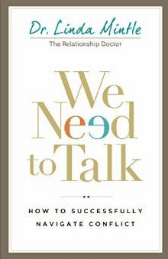 Revenge is an angry response to being treated in wrong ways, but it is not a godly response. Scripture tells us that revenge is the Lord’s and we need to leave it to him.
Revenge is an angry response to being treated in wrong ways, but it is not a godly response. Scripture tells us that revenge is the Lord’s and we need to leave it to him.
Revenge doesn’t solve anything anyway. It only ups the ante for more hate and anger, which negatively impacts the body, only serving to hurt the person seeking revenge. If you find yourself wanting revenge, these biblical prescriptions may help curb that urge.
- Be slow to speak and to become angry. “My dear brothers and sisters, take note of this: Everyone should be quick to listen, slow to speak and slow to become angry” (James 1:19).
- Examine your heart. What do you desire? “A quick-tempered person does foolish things, and the one who devises evil schemes is hated” (Prov. 14:17).
- Find the lesson in the anger. Is there something that needs to be corrected, changed, or dealt with better? Look for the lesson. “Tremble and do not sin; when you are on your beds, search your hearts and be silent” (Ps. 4:4).
- Observe your feelings. Acknowledge the feeling and then let it go. Practice calming techniques. “Better a patient person than a warrior, one with self-control than one who takes a city” (Prov. 16:32).
- Don’t allow your anger to escalate. “A hot-tempered person must pay the penalty; rescue them, and you will have to do it again” (Prov. 19:19).
- Regroup. “Fools give full vent to their rage, but the wise bring calm in the end” (Prov. 29:11).
- Have a big-picture perspective. Is your anger worth the relationship? It is more important to be right than to be merciful? “But now you must also rid yourselves of all such things as these: anger, rage, malice, slander, and filthy language from your lips” (Col. 3:8).
- Surround yourself with people who exercise self-control. “Do not make friends with a hot-tempered person, do not associate with one easily angered” (Prov. 22:24).
Excerpt from We Need To Talk by Linda Mintle (Baker Books, 2015)

